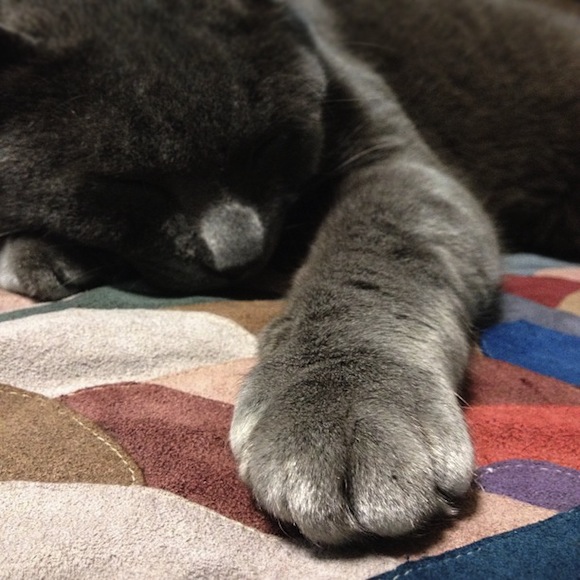
A little while ago, we introduced you to the Japanese expression “hana yori dango” (dumplings over flowers), using a picture of one of our capybara friends at the Ueno Zoo as a living example of the phrase. Well, that article got us thinking about Japanese idioms/expressions that may sound strange or funny in a different language when translated literally, and we thought it might be interesting to share a few of them with you. Here are some common phrases that we use in the Japanese language as a matter of course, but could make you laugh if you visualize their literal meaning in your mind. And yes, some of them involve cats!
1. It’s acorns comparing heights: どんぐりの背比べ (donguri no seikurabe)
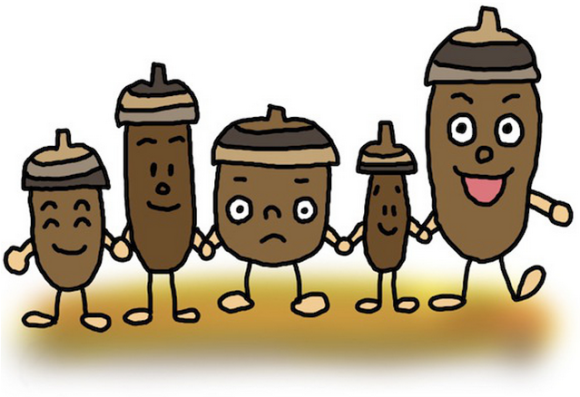
Why would acorns be comparing sizes? Well, that’s the expression we use to describe a group that is roughly the same in ability or quality, usually not at a high level, and without any standouts. In this case, acorns are used as an example of something that comes mostly in the same sizes and appearances, which makes comparing them somewhat moot. For example, when there’s nothing special among the entries in a writing or photography contest, you might look at the pile of submitted works and say, “Donguri no seikurabe desu ne.” (It’s acorns comparing heights.)
2. My hand is coming out of my throat: 喉から手が出る (nodo kara te ga deru)
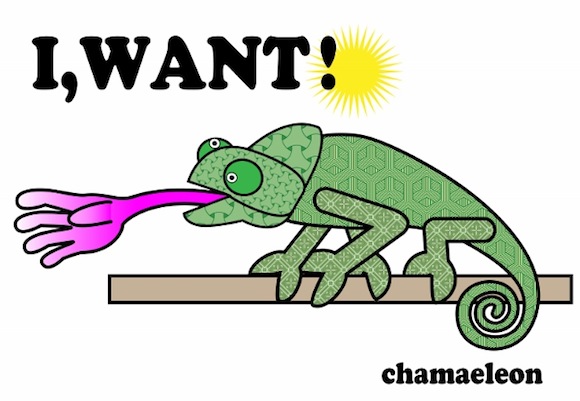
You know when you really, really want something and you’re thinking that you’ll die if you can’t have that bag or job promotion or concert ticket or whatever it is that you need? Well, then this is the Japanese phrase to use. The expression probably comes from a time when food was much more scarce and people were so hungry that it would feel like a hand might come out from your stomach through your throat to grab any food that was around, but nowadays, it can be used to refer to anything that you really want. If, like yours truly, you have a weakness for fashion items, you could say, “Ano kutsu, nodo kara te ga deru hodo hoshii!” (I want those shoes so much, my hand is coming out of my throat!)
3. A weasel’s last fart: イタチの最後っ屁 (itachi no saigoppeh)

This phrase comes from the fact that itachi (Japanese minks or weasels) emit a highly unpleasant smell when cornered or facing danger, and is used to describe a desperate act by someone in a troubled situation, something done as a last resort. It’s not exactly a polite expression, as you may have guessed from the word “fart”, written as 屁, which is pronounced “heh”on its own but is “peh” in this case because of the letters that come before it. (A more polite way to refer to this type of gas in Japanese would be “onara”.) You could say, “Tondemonai itachi no saigoppeh datta!” (That was one heck of a weasel’s last fart!) when, for example, someone forced to quit their job after problems with a coworker sends a vicious and damaging message to said (supposedly evil) coworker in an e-mail that everyone in the company can read.
4. Like washing potatoes: 芋を洗うよう (imo wo arau yō)
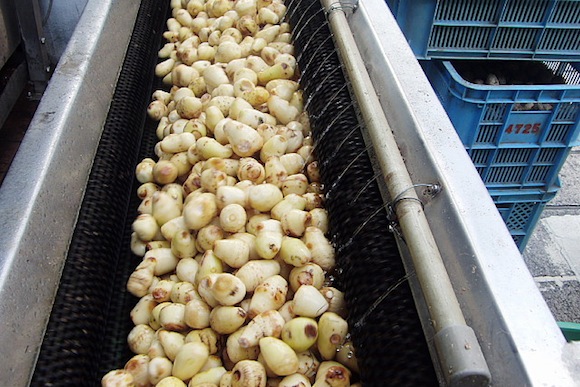
No one likes to be caught in a large crowd that you can barely squeeze through. Well, it turns out we have an expression in Japanese to describe precisely that kind of crowd, which probably isn’t too surprising, considering that crowded situations are quite common in Japan, from the subway during morning rush hour to amusement parks and even art exhibits. The phrase comes from the old-fashioned practice of washing a huge amount of potatoes in a barrel, with the sight of all the potatoes soaking in the water looking somewhat like a mass of people crowded into a small space. If you’ve gone to a museum exhibit that was so crowded that you felt like you spent most of the time looking at the back of people’s heads, you could say, “Sugoku konde ite imo wo arau yō na hito datta!”(It was so crowded, it was like washing potatoes!)
▼In Japan, even monkeys wash potatoes!
5. It won’t hurt to put him/her inside my eye: 目の中に入れても痛くない (me no naka ni iretemo itaku nai)
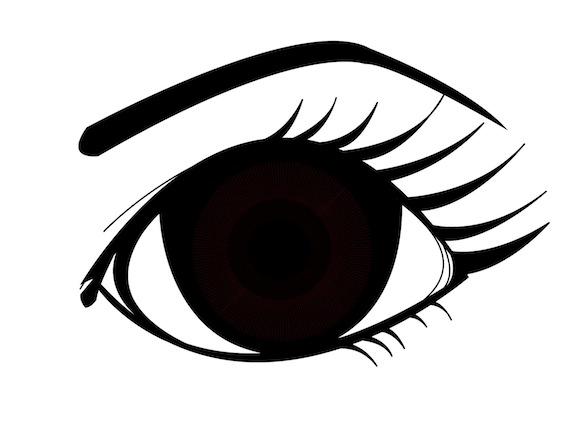
Umm… of course putting objects in your eye will hurt! But when you find someone, usually a child or grandchild or sometimes even a pet, so cute that you have no words to describe how dear he or she is to you, you can say in Japanese that so-and-so is so cute, it won’t hurt even if you put him/her in your eye. That’s quite a drastic declaration of affection to make, isn’t it? And not one that anyone would be tempted to try literally, but it’s still quite a frequently used expression in Japanese. In my case, I have an adorable young niece about whom I can definitely say, “Me no naka ni iretemo itaku nai hodo kawaii!” (She’s so cute, it won’t hurt even if I put her in my eye!)
6. I’m growing callouses in my ear: 耳にたこができる (mimi ni tako ga dekiru)
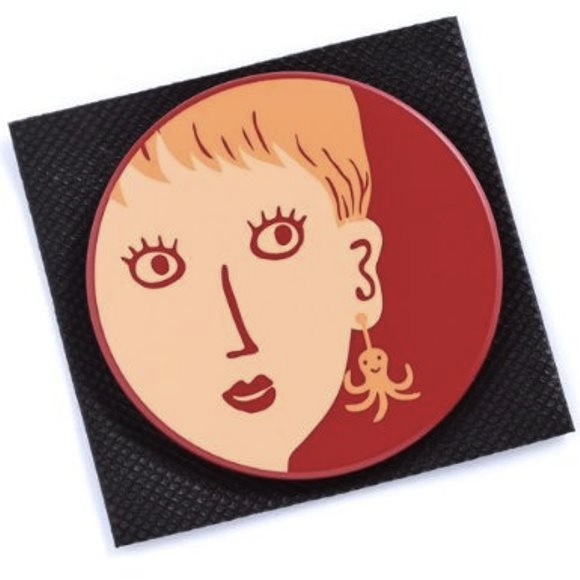
Have you ever been tired of hearing the same comments, complaints or words of caution over and over again? If you’re expressing your thoughts in Japanese, you might respond to such a situation by saying literally that you’re growing callouses in your ear. Funnily enough, the word for callous in Japanese is pronounced exactly the same as the word for octopus — tako (pronounced like the mexican food taco). As a result, although it’s not an accurate association, we also tend to think of octopus when we hear this expression, which makes for an even funnier image when visualized. If, for example, like many mums around the world, your mother is constantly telling you to be careful of this and that, you may be tempted to say in exasperation, “Oka-san, mo mimi ni tako ga dekiru hodo kiitayo.” (Mom, I’ve heard that so many times, I’ve grown callouses in my ear.)
7. Brew and drink the dirt from under someone’s fingernails: 爪の垢を煎じて飲む (tsume no aka wo senjite nomu)
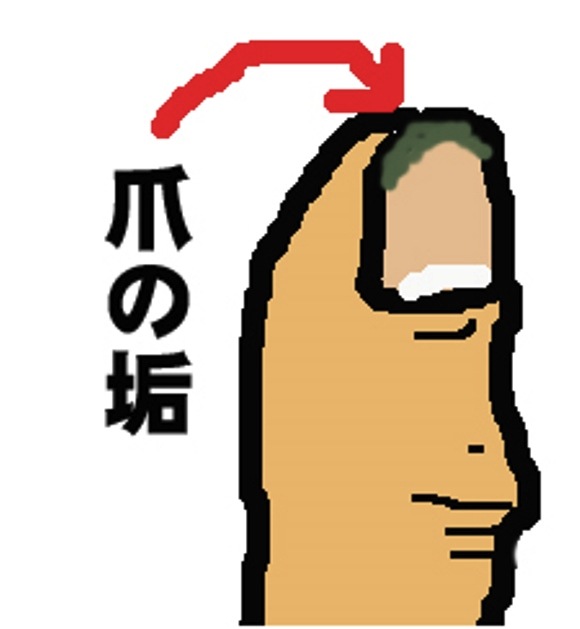
What should people who need serious discipline and inspiration do to improve their situation? Well, according to this common Japanese idiom, they should brew the dirt from under the fingernails of someone capable and worthy of respect and drink it like a tea in the hopes that some of the admirable qualities of the person contributing the dirt will somehow be transferred onto them. Of course, no one takes this expression literally, but someone who is acting selfishly might be reprimanded, “Maza Teresa no tsume no aka wo senjite nondara ii.” (You should brew and drink the dirt from under Mother Theresa’s fingernails.)
8. Snake legs: 蛇足 (dasoku)
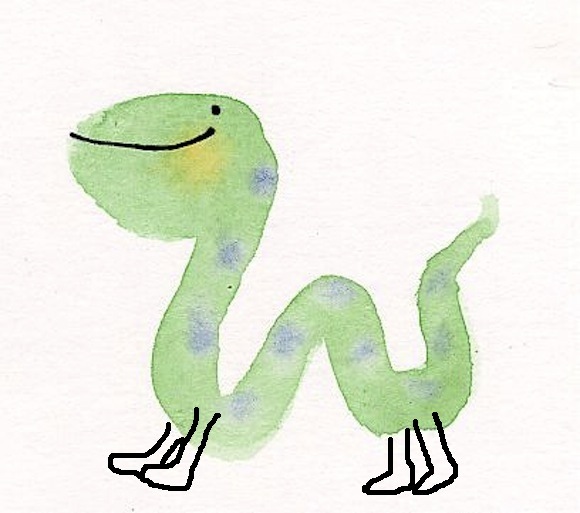
But wait, snakes don’t have legs … do they? Well, that’s kind of the point behind this “slithery” expression which actually has its origins in one of the episodes recorded in the ancient Chinese historical text Zhan Guo Ce (Strategies of the Warring States) but nonetheless has become firmly incorporated into the Japanese language. In the original Chinese account, it is said that a group of servants were given some alcohol to drink — not enough to be shared by everyone in the group, but plenty for one person. The servants decided that they would have a little drawing competition and whoever was able to draw a picture of a snake on the ground the fastest would get to have the drink by himself. One servant who drew very quickly was the first to finish and was about to claim the drink for himself when he boastingly said that he completed his drawing with so much time left that he can even add legs to his snake, which he promptly did, drawing on legs to the snake he had just drawn. While he was adding the legs, however, another servant finished drawing and took the alcohol, saying that he was the first to complete a picture of a snake, since snakes don’t have legs and a drawing with legs couldn’t be considered a proper snake. From this episode, the expression “snake legs” has come to mean something additional that is unnecessary and possibly detrimental. If someone makes a remark that is uncalled for and nonconstructive, you could say, “Ima no wa dasoku da.” (That comment just now was snake legs.)
9. Borrowing the cat’s paws: 猫の手も借りたい (neko no te mo karitai)

The Japanese language has a surprising number of expressions involving cats, and of course we had to present some of them here. I’m sure we’ve all had the experience of being so maddeningly busy that we barely seem to have the time to breathe. At times like those, in Japanese you can say that you’re willing to borrow even cat’s paws for extra help. If you have a work assignment deadline coming up, a pile of dirty laundry and dishes staring at you accusingly and a young child screaming for your attention all at the same time, then yes, you’re allowed to say “Tasukete! Mo neko no te mo karitai hodo isogashii!” (Help! I’m so busy I want to borrow even cat’s paws)
10. Putting on a cat: 猫を被る (neko wo kaburu)

We undoubtedly all have times we consciously try to act sweet and look like we’re on our best behavior. That’s what we would call “putting on a cat” in Japanese. The expression is perhaps quite apt, since cats seem to have a great knack for getting into all sorts of mischief like destroying the furniture or toppling breakable ornaments and looking like they’ve done absolutely nothing wrong. If you put on too much of an act when you start your new job or when meeting your boyfriend’s parents for the first time, then someone might comment accusingly, “Zuibun neko wo kabutteru ne!” (You’re putting on quite the cat!)
So, what did you think of these expressions? We use them in Japanese without really considering their literal meaning, but they sound quite funny when you think about it. And by all means, do let us know if there are others you think should be on this list. Personally, my favorite is the one about putting your loved ones in your eye, just because it’s such a silly and unreal expression when taken literally. Every language probably has its share of strange-sounding expressions, but we hope you enjoyed our little session on Japanese idioms and phrases!

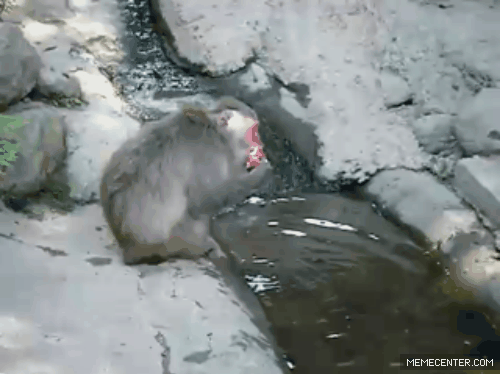 Gif:
Gif:  Words they don’t teach you in Japanese class: How to say “straw man” in Japanese
Words they don’t teach you in Japanese class: How to say “straw man” in Japanese Five magic Japanese phrases to know before starting a job in Japan
Five magic Japanese phrases to know before starting a job in Japan Japan’s new custom-order cat-theme toilet paper lets you wipe your butt with cuteness
Japan’s new custom-order cat-theme toilet paper lets you wipe your butt with cuteness Beautiful booth models and tasty chow – A non-car guide to the Tokyo Motor Show【Photos】
Beautiful booth models and tasty chow – A non-car guide to the Tokyo Motor Show【Photos】 Nagasaki man lifts his apartment toilet lid to find terrifying surprise inside
Nagasaki man lifts his apartment toilet lid to find terrifying surprise inside One of Japan’s oldest castles now lets travelers spend night on the grounds, drink in its keep
One of Japan’s oldest castles now lets travelers spend night on the grounds, drink in its keep Foreigner’s request for help in Tokyo makes us sad for the state of society
Foreigner’s request for help in Tokyo makes us sad for the state of society McDonald’s Japan’s new pancake pie is a taste sensation
McDonald’s Japan’s new pancake pie is a taste sensation Bad tourist manners at Mt Fuji Lawson photo spot prompts Japanese town to block view with screens
Bad tourist manners at Mt Fuji Lawson photo spot prompts Japanese town to block view with screens Studio Ghibli unveils new goods that tip the hat to The Cat Returns
Studio Ghibli unveils new goods that tip the hat to The Cat Returns History’s largest force of Samurai Colonel Sanders deploying to KFC Japan branches
History’s largest force of Samurai Colonel Sanders deploying to KFC Japan branches Spring Mos Burger x SpongeBob lucky bags bring us fun under the sun【Photos】
Spring Mos Burger x SpongeBob lucky bags bring us fun under the sun【Photos】 W.T.F. Japan: The top five “sora” references of all time! 【Weird Top Five】
W.T.F. Japan: The top five “sora” references of all time! 【Weird Top Five】 Kyoto bans tourists from geisha alleys in Gion, with fines for those who don’t follow rules
Kyoto bans tourists from geisha alleys in Gion, with fines for those who don’t follow rules Who wins in a battle of McDonald’s and Komeda Coffee’s chicken tatsuta burgers?【Taste test】
Who wins in a battle of McDonald’s and Komeda Coffee’s chicken tatsuta burgers?【Taste test】 Red light district sushi restaurant in Tokyo shows us just how wrong we were about it
Red light district sushi restaurant in Tokyo shows us just how wrong we were about it Japanese city loses residents’ personal data, which was on paper being transported on a windy day
Japanese city loses residents’ personal data, which was on paper being transported on a windy day McDonald’s new Happy Meals offer up cute and practical Sanrio lifestyle goods
McDonald’s new Happy Meals offer up cute and practical Sanrio lifestyle goods Japanese ramen restaurants under pressure from new yen banknotes
Japanese ramen restaurants under pressure from new yen banknotes Ghibli Park now selling “Grilled Frogs” from food cart in Valley of Witches
Ghibli Park now selling “Grilled Frogs” from food cart in Valley of Witches Two things to do, and two things not to do, when leaving a traditional Japanese inn
Two things to do, and two things not to do, when leaving a traditional Japanese inn New definition of “Japanese whiskey” goes into effect to prevent fakes from fooling overseas buyers
New definition of “Japanese whiskey” goes into effect to prevent fakes from fooling overseas buyers Our Japanese reporter visits Costco in the U.S., finds super American and very Japanese things
Our Japanese reporter visits Costco in the U.S., finds super American and very Japanese things All-you-can-drink Starbucks and amazing views part of Tokyo’s new 170 meter-high sky lounge
All-you-can-drink Starbucks and amazing views part of Tokyo’s new 170 meter-high sky lounge More foreign tourists than ever before in history visited Japan last month
More foreign tourists than ever before in history visited Japan last month New Pokémon cakes let you eat your way through Pikachu and all the Eevee evolutions
New Pokémon cakes let you eat your way through Pikachu and all the Eevee evolutions Disney princesses get official manga makeovers for Manga Princess Cafe opening in Tokyo
Disney princesses get official manga makeovers for Manga Princess Cafe opening in Tokyo French Fries Bread in Tokyo’s Shibuya becomes a hit on social media
French Fries Bread in Tokyo’s Shibuya becomes a hit on social media Sales of Japan’s most convenient train ticket/shopping payment cards suspended indefinitely
Sales of Japan’s most convenient train ticket/shopping payment cards suspended indefinitely Sold-out Studio Ghibli desktop humidifiers are back so Totoro can help you through the dry season
Sold-out Studio Ghibli desktop humidifiers are back so Totoro can help you through the dry season Japanese government to make first change to romanization spelling rules since the 1950s
Japanese government to make first change to romanization spelling rules since the 1950s Ghibli founders Toshio Suzuki and Hayao Miyazaki contribute to Japanese whisky Totoro label design
Ghibli founders Toshio Suzuki and Hayao Miyazaki contribute to Japanese whisky Totoro label design Doraemon found buried at sea as scene from 1993 anime becomes real life【Photos】
Doraemon found buried at sea as scene from 1993 anime becomes real life【Photos】 Tokyo’s most famous Starbucks is closed
Tokyo’s most famous Starbucks is closed One Piece characters’ nationalities revealed, but fans have mixed opinions
One Piece characters’ nationalities revealed, but fans have mixed opinions We asked a Uniqlo employee what four things we should buy and their suggestions didn’t disappoint
We asked a Uniqlo employee what four things we should buy and their suggestions didn’t disappoint Cultural differences spoiling the sing-along version of Frozen for some fans
Cultural differences spoiling the sing-along version of Frozen for some fans Sheltering-in-place Japanese schoolkids form “Neo-Chorus” choir to refresh our hearts【Video】
Sheltering-in-place Japanese schoolkids form “Neo-Chorus” choir to refresh our hearts【Video】 Seven mistakes foreigners make when speaking Japanese—and how to fix them
Seven mistakes foreigners make when speaking Japanese—and how to fix them The three ways to say “love” in Japanese, and when to use them
The three ways to say “love” in Japanese, and when to use them Foreign English teachers in Japan pick their favorite Japanese-language phrases【Survey】
Foreign English teachers in Japan pick their favorite Japanese-language phrases【Survey】 Let’s learn how to sing “Jingle Bells” in Japanese with the help of Santa Pikachu!【Video】
Let’s learn how to sing “Jingle Bells” in Japanese with the help of Santa Pikachu!【Video】 Rising Pokémon star Eevee gets her own official dance for the Project Eevee theme song 【Video】
Rising Pokémon star Eevee gets her own official dance for the Project Eevee theme song 【Video】 The booth girls of Tokyo Auto Salon 2016【Pics】
The booth girls of Tokyo Auto Salon 2016【Pics】 “Good on the floor?” Five funny times Google Translate drops the ball with Japanese idioms
“Good on the floor?” Five funny times Google Translate drops the ball with Japanese idioms Lingo mambo! Spanish YouTuber teaches us 14 Taiwanese pet phrases【Video】
Lingo mambo! Spanish YouTuber teaches us 14 Taiwanese pet phrases【Video】 Yawning snake is surprisingly cute, hanging on your every word 【Video】
Yawning snake is surprisingly cute, hanging on your every word 【Video】 The Mr. Sato car applies to join Japan’s largest custom car event: Tokyo Auto Salon 2018
The Mr. Sato car applies to join Japan’s largest custom car event: Tokyo Auto Salon 2018 Japanese version of Frozen 2’s “Into the Unknown” is a powerful return for Elsa’s singer in Japan
Japanese version of Frozen 2’s “Into the Unknown” is a powerful return for Elsa’s singer in Japan Japanese textbook tries to cleverly illustrate chemical bonds, but the internet has other ideas
Japanese textbook tries to cleverly illustrate chemical bonds, but the internet has other ideas Japan’s AI schoolgirl has fallen into a suicidal depression in latest blog post
Japan’s AI schoolgirl has fallen into a suicidal depression in latest blog post
Leave a Reply